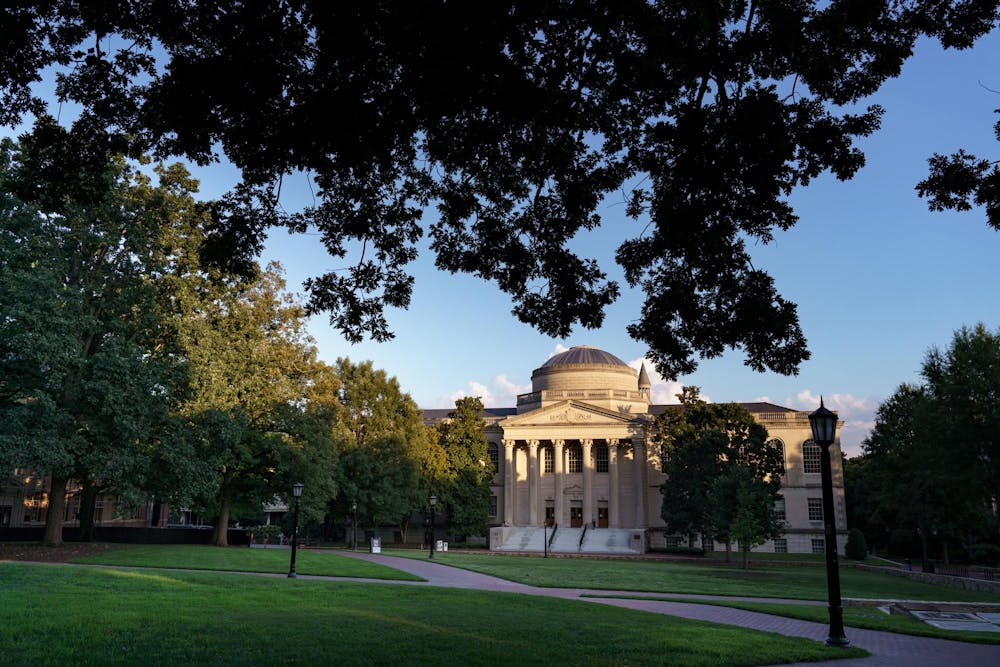On Dec. 20, Provost Chris Clemens sent a mass email addressing a potential government shutdown. Although the shutdown was avoided, the email raised questions regarding what a federal standstill would mean for the University and the broader impacts of federal decisions on campus.
“It might be easy for people to kind of assume that any potential federal shutdowns would not impact everyday life on campus, but it's not entirely correct,” graduate student Megan Blackwood said.
The federal government last experienced a shutdown in December 2018. In his email, Clemens assured the university community that it is “well prepared” and has been “carefully planning” for the possibility of another shutdown.
“If there is a short-term shutdown, which we've had in the past, we've been able to float those folks who are being supported on contracts, until we can get back up and running,” Kelly Dockham, the University’s Director of Federal Affairs, said.
Dockham said that as a public university, UNC relies more heavily on federal funding than private institutions. She said that shutdowns rarely impact students' federal aid because that funding is typically administered at the beginning of the semester, and shutdowns typically last only for days at a time, leaving scholarships unaffected. On the other hand, she said that federal contracts, such as funding for research, would be cut off immediately. This requires that the University front money owed to researchers.
Gerald Cohen, research professor of finance and former deputy assistant secretary for macroeconomic analysis at the U.S. Department of Treasury, said that the University also depends on state funding for salaries and operational costs.
The Federal Affairs Department collaborates with leadership on campus to craft a “federal priority list.” Most of this, Dockham said, involves the appropriation of federal funding for financial aid programs like the Federal Pell Grant, and for research grants from agencies such as the National Institutes of Health and the National Science Foundation.
Blackwood also cited supplemental education opportunity grants, FAFSA and federal work study programs as being reliant on federal funding.
In 2025 North Carolina is estimated to receive $1,214,381,944 in federal funds for post secondary education programs, Blackwood said, adding that the state then decides how to spend it. Once allocated to UNC, the UNC Board of Governors decides where it goes.



